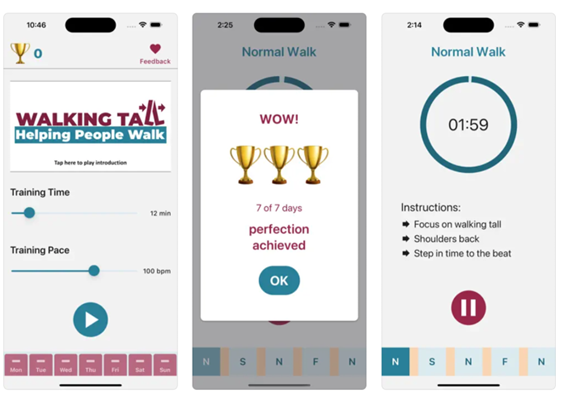The app, aptly named Walking Tall uses a unique gait re-training tool that allows users to set their own training time and pace. It delivers a rhythmic metronomic beat for three different walking speeds, designed to trigger movement and encourage better walking patterns.
“We’re training [patients] in gait adaptability. Sometimes they also need to [visualize] a walking style because often people with [Parkinson’s disease] suffer from hypokinesia where their movements are not actually as big as they feel they are,” Brodie said. “So we are encouraging them to take exaggerated steps, which will actually be more like regular steps.”
“This app can give people confidence and also a sense of achievement that they can be empowered and do something for themselves to help their own condition.”









